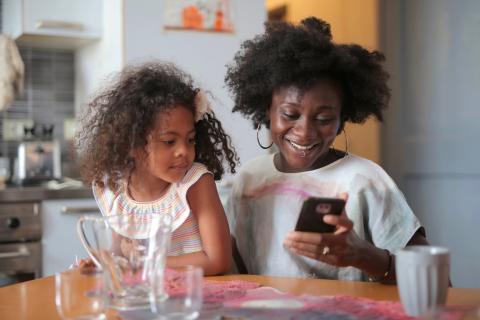3 Things All Kids Should Learn About Before Using Social Media

Within the last few decades, the internet has become a significant part of everyday life for so many people, including kids. Across the country, schools are getting kids using the internet at an early stage in their education. Many parents have their kids using smartphones and tablets even earlier than that.
With kids using social media at such an early age, they must learn how to use it safely sooner rather than later. Teaching kids how to use social media responsibly will help them to recognize risks while still enjoying the benefits that these platforms have to offer.
Social Media Safety Basics
When teaching kids about social media, there are some basic guidelines that all kids should know from the start. To start, they must understand the risks involved in regards to giving out too much personal information online.
Sharing Personal Data in Posts
Personally identifiable information (PII) is information that can be used to identify an individual. Information that is considered PII includes details like your social security number, personal address, passport number, credit card number, and other data that is often unique to an individual.
Using PII online isn't uncommon, as it is often required when taking certain basic actions online, such as making a purchase. However, it's essential to understand when and where to use this information online, especially when they're browsing the web without parental supervision.
Talk to your kids about using personal details online. They should never be posting this information in public forums like social media. Children should also be cautious about sharing information that might not be considered sensitive PII.
For example, instead of using their full name for their social media profiles, you might ask your kids to use a screen name that makes it harder for just anyone to locate their profiles. Also, encourage them not to share details that they use in any account passwords such as their birthdate or your pet's name.
Considerations for Images
Sharing photos on social media is so common that many don't think too much of it, let alone realize the potential consequences of doing so. Even when it's a parent choosing to share pictures of their children on their personal social media profiles, questions of consent quickly arise. The same goes for when anyone shares a picture of someone else online, even if they are your friends or family members.
Before even opening their first social media profiles, a child must recognize the impact that sharing images can have on their life and those close to them. Talk to your kids about privacy settings, consent, and what constitutes an appropriate photo to share online.
Facebook, TikTok, and other social media outlets offer privacy settings that allow users to make their account private except for the individuals that the user chooses to invite to view their profile. Ensure that your kids have these settings activated, and encourage them only to allow people they know personally to view their profile like real-life friends and family.
Even if your child's accounts are private, discuss consent in regards to sharing pictures. If there are friends in a picture they want to share, encourage your kids to ask their friends before posting the photo. This gives the others in the photo a chance to consent to their image being posted online.
If your child is rather young but already using social media, you as their parent might consider speaking to the parents of other kids in the pictures before posting. The truth is that consent might not always come before every post is shared online, but bringing the issue to the table early can help your child understand the significance of sharing information about others online.
Finally, be sure to talk about what kinds of photos are appropriate to share online. Offensive or blatantly gross images should stay off their social profiles, as they could have potential repercussions now or even in the future. For instance, employers and colleges today often review the social media pages of individuals that they would potentially hire or accept, so what they see on your child's profiles could weigh into their decision.
Cyberbullying and Trolling
Cyberbullying has been a prevalent issue for several years now. It often involves one or more individuals using web-based platforms to target and harass another person. For kids and teens, cyberbullying usually occurs between people who already know or are acquainted with each other from school or social circles.
Trolling is similar to cyberbullying in that it's another form of online harassment that often occurs on social media. Trolling involves someone—often anonymous—posting comments or sending messages that are abusive and hurtful. In many instances, the goal of someone trolling is to create disruption online. They may be more apt to post public comments and attack individuals they don't personally know.
Talk to your kids about both cyberbullying and trolling. If they feel they are being bullied or trolled online, they should tell you or another trusted adult. On most social media platforms, your child can block others so they can no longer view their profiles or send them messages. Also, some social media platforms will let you report inappropriate activity to the platform itself. This could lead to inappropriate posts being deleted or the instigator's account being closed.
Never engage a bully or troll online, as it could just encourage continued behavior. Blocking or reporting bullies or trolls online is the most appropriate first step to take. Additional measures—such as involving the authorities—could be taken if the abuse continues or becomes worse.
The most important thing parents can do to help their children use social media safely is through education. Talking to your kids about sharing personal information, posting the right photos, and being cautious about cyberbullying and trolling are all crucial lessons they should learn early on. Social media will likely continue to integrate itself deeper into our lives, and these lessons will help your kids protect themselves while still getting to enjoy the positive aspects of these platforms.


